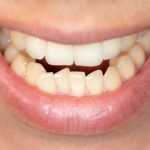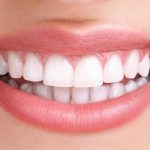Say Goodbye to Overgrown Gums: Quick and Easy Ways to Fix Gums Growing Over Teeth
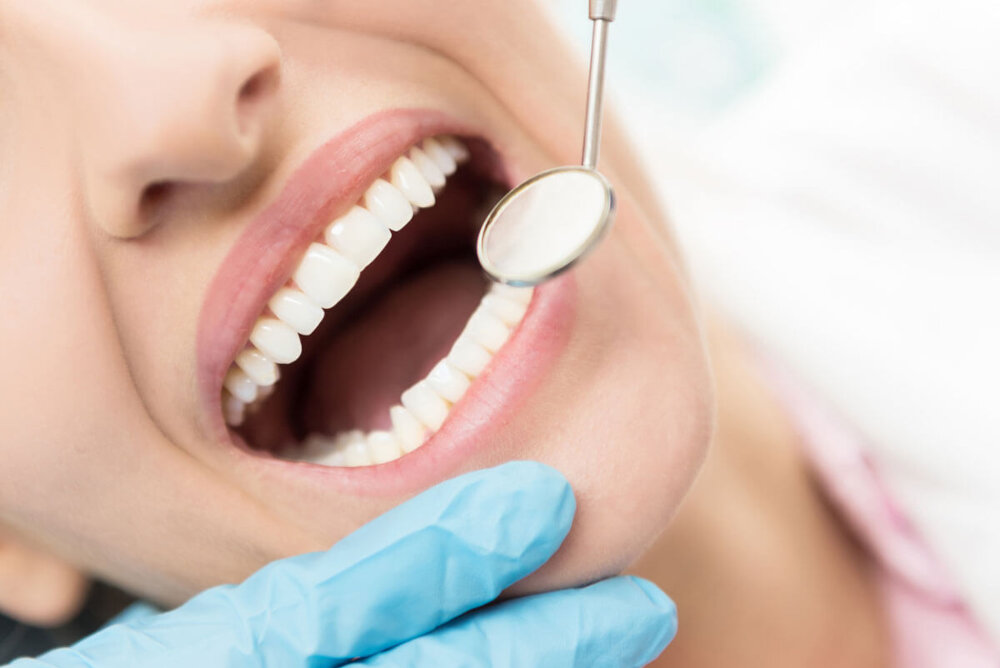
Overgrown gums can be a pesky, painful problem for many people. Also known as gum hypertrophy, this condition occurs when the gums grow over the teeth, causing discomfort, sensitivity, and even difficulty speaking or eating. While overgrown gums can be caused by a variety of factors, including genetics and certain medications, there are quick and easy ways to fix this issue. If you’re tired of dealing with the discomfort and embarrassment of overgrown gums, you’ll be pleased to know that there are several effective treatment options available. From simple lifestyle changes to more advanced medical procedures, you can find a solution that works for you. By taking steps to address your overgrown gums, you can improve your oral health, boost your confidence, and enjoy a pain-free smile once again. So say goodbye to overgrown gums and hello to a more comfortable, confident you!
Overgrown gums, also known as gingival hyperplasia or hypertrophy, are a condition where the gum tissue grows excessively and covers a significant portion of the teeth, making them appear smaller. This condition can be caused by several factors, including genetics, poor dental hygiene, certain medications, and systemic diseases such as leukemia and hormonal imbalances. Overgrown gums can lead to discomfort, difficulty in cleaning teeth, and an unattractive smile, which can affect one’s self-esteem. Fortunately, there are various ways to treat and prevent overgrown gums, ranging from proper oral hygiene practices and medication adjustments to surgical procedures such as gingivectomy and laser therapy.
Overgrown gums can be caused by a variety of factors, including poor oral hygiene, hormonal changes, certain medications, genetic predisposition, and medical conditions such as leukemia or Crohn’s disease. Poor oral hygiene, such as not brushing or flossing regularly, can lead to the buildup of plaque and tartar, which can irritate the gums and cause them to grow over the teeth. Hormonal changes during pregnancy, puberty, and menopause can also lead to overgrown gums. Certain medications, such as antiseizure drugs and immunosuppressants, can cause the gums to grow over the teeth. Additionally, genetic factors and medical conditions can also play a role in the development of overgrown gums. It is essential to identify the underlying cause of overgrown gums to determine the most appropriate treatment plan.
Overgrown gums not only affect the appearance of your smile but can also cause discomfort and pain. They occur due to various reasons, including poor oral hygiene, hormonal changes, and certain medications. If left untreated, overgrown gums can lead to gum disease, tooth decay, and even tooth loss. Therefore, fixing overgrown gums is essential to maintain good oral health and prevent further complications. There are various quick and easy ways to fix gums growing over teeth, including scaling and root planing, laser gum surgery, and orthodontic treatment. Consulting a dentist or periodontist can help you determine the best treatment option for your specific needs and restore a healthy and beautiful smile.
Professional Treatment Options

Gum overgrowth, also known as gingival hyperplasia, can be a challenging issue to deal with. In some cases, it can even lead to severe oral health problems if not treated promptly. Fortunately, there are various professional treatment options available to help fix overgrown gums quickly and easily. The treatment you receive will depend on the severity of your case, your overall oral health, and the underlying cause of the issue. One of the most common treatment options for gum overgrowth is gum contouring, also known as gum reshaping. This procedure involves removing excess gum tissue using a laser or scalpel. The goal of gum contouring is to create a more aesthetically pleasing gum line that complements the teeth. This procedure is typically performed under local anesthesia and can be completed in a single visit. Recovery time is minimal, and most patients can return to their normal activities the same day. Other treatment options include scaling and root planing, medication, and surgery for more severe cases. It’s essential to consult with your dentist or periodontist to determine the best course of action for your specific situation.
Scaling and root planing is a non-surgical procedure that involves deep cleaning of the teeth and gums to treat gum disease. This treatment is recommended for patients who suffer from gum inflammation and bacterial infections caused by the buildup of plaque and tartar. During the procedure, the dentist or hygienist will use specialized tools to remove the plaque and tartar from the teeth and below the gumline. The root surfaces of the teeth will be smoothed out to eliminate any rough areas where bacteria can accumulate. Scaling and root planing can help prevent further damage to the gums and teeth and promote the growth of healthy tissue. This treatment can be an effective solution for those who want to say goodbye to overgrown gums and restore a healthy smile.
Gingivectomy is a dental procedure that involves the removal of excess gum tissue that has grown over the teeth, causing dental problems such as tooth decay and gum disease. This procedure is typically recommended for patients who suffer from gum disease or have excessive gum tissue that makes it difficult to clean their teeth properly. During the procedure, a dentist or periodontist will use a scalpel or laser to remove the excess gum tissue, reshaping the gums and creating a more aesthetically pleasing smile. Gingivectomy is a quick and easy way to fix overgrown gums, and patients can expect to experience minimal discomfort and a relatively short recovery time.
Laser gum surgery is a modern and innovative procedure that involves using a laser to remove excess gum tissue and reshape the gums. This treatment is a quick and easy way to fix gums growing over teeth and can provide a more aesthetically pleasing smile. The laser used in the surgery is incredibly precise and can target only the affected areas, leaving healthy tissue unharmed. Unlike traditional gum surgery, laser gum surgery is minimally invasive and requires no sutures or stitches, making it an ideal option for those who want to avoid the discomfort and downtime associated with traditional surgery. Additionally, laser gum surgery typically results in less bleeding and swelling, allowing patients to return to their daily activities sooner.
AtHome Remedies

When it comes to taking care of our oral health, we often tend to overlook the importance of our gums. However, having overgrown gums can cause discomfort, pain, and even lead to serious dental problems. While it’s always best to consult with a dentist for professional treatment, there are some effective at-home remedies that can help alleviate the issue. One such remedy is saltwater rinses. Simply mix a teaspoon of salt in warm water and swish it around your mouth for a minute or two. This can help reduce inflammation and prevent the gums from growing over the teeth. Another effective at-home remedy is using aloe vera gel. Aloe vera has natural anti-inflammatory and antibacterial properties that can help soothe and heal the gums. Simply apply a small amount of aloe vera gel to the affected area and leave it on for a few minutes before rinsing it off. Regular use of aloe vera gel can not only help reduce overgrown gums but also promote overall gum health. However, it’s important to note that while these remedies can provide temporary relief, it’s essential to address the root cause of the issue by seeking professional dental care.
Saltwater rinse is a simple and effective way to treat overgrown gums. The rinse is made by adding a tablespoon of salt to a cup of warm water and swishing the solution around the mouth for about 30 seconds before spitting it out. Saltwater rinse can help reduce inflammation, soothe sore gums, and kill bacteria that contribute to gum overgrowth. Additionally, it is a natural remedy that is easy to make at home and is more affordable than other treatments. It is important to note that saltwater rinse is not a substitute for professional dental care, but it can be a helpful addition to a regular oral hygiene routine.
Oil pulling is an ancient practice that involves swishing oil in your mouth for several minutes to remove toxins and improve oral health. This technique has gained popularity in recent times due to its potential benefits, which include reducing bacteria in the mouth, preventing cavities, and promoting healthy gums. While there is limited scientific evidence to support oil pulling, many people swear by its effectiveness in improving their oral health. Some of the oils commonly used for oil pulling include coconut oil, sunflower oil, and sesame oil. It is important to note that oil pulling should not be considered a replacement for regular dental checkups and oral hygiene practices, but rather as a complementary technique to support overall oral health.
Aloe vera gel, derived from the aloe vera plant, is a popular natural remedy for a variety of ailments. It is known for its anti-inflammatory and antimicrobial properties, making it a great option for treating overgrown gums. The gel can be applied directly to the affected area, providing a soothing and cooling sensation that can help to reduce inflammation and promote healing. Aloe vera gel is also rich in vitamins and minerals, which can help to strengthen gums and promote healthy oral hygiene. It is a safe and effective alternative to traditional treatments for overgrown gums, and can be easily incorporated into your daily oral care routine.
Maintaining Healthy Gums
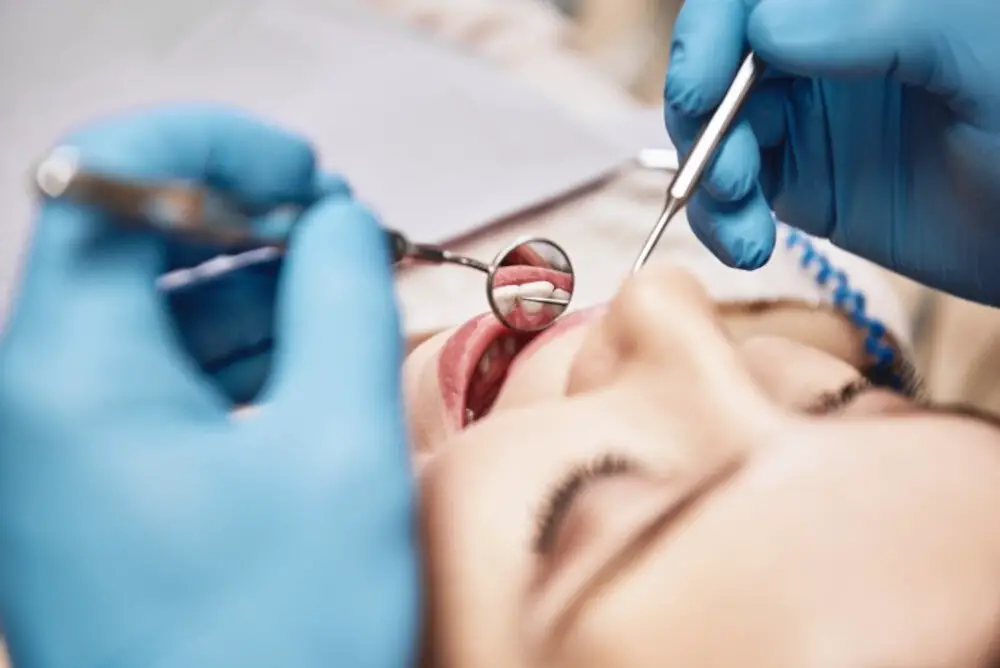
Maintaining healthy gums is crucial for overall oral health. Gums play a vital role in keeping teeth in place, and unhealthy gums can lead to tooth loss. One of the most effective ways to maintain healthy gums is by practicing good oral hygiene. Brushing twice a day, flossing daily, and using mouthwash can help remove plaque and bacteria that can cause gum disease. It is also important to visit the dentist regularly for check-ups and cleanings to detect and treat any early signs of gum disease. Another way to maintain healthy gums is by eating a healthy and balanced diet. Foods that are high in sugar and carbohydrates can promote the growth of bacteria in the mouth, which can lead to gum disease. On the other hand, foods that are rich in vitamins and minerals, such as fruits and vegetables, can help strengthen gums and prevent gum disease. Additionally, drinking plenty of water can help flush away bacteria and plaque from the mouth, promoting healthy gums. By practicing good oral hygiene and eating a healthy diet, individuals can maintain healthy gums and prevent gum disease.
Maintaining good oral hygiene is paramount in preventing gum overgrowth. Regular brushing and flossing are essential to eliminate plaque, bacteria, and food particles that accumulate around the teeth and gum line. Brushing at least twice a day with a soft-bristled toothbrush and fluoride toothpaste helps to remove the buildup of plaque and bacteria, which can cause gum inflammation and overgrowth. Flossing once a day is also crucial in removing food particles and plaque in between teeth and underneath the gum line, where a toothbrush cannot reach. Incorporating good oral hygiene practices into your daily routine can help prevent gum overgrowth and other dental problems, leading to healthier teeth and gums.
Proper nutrition is crucial for maintaining healthy gums and teeth. Consuming a balanced diet rich in fruits, vegetables, lean proteins, and whole grains can provide essential vitamins and minerals to support oral health. Additionally, limiting sugary and processed foods can prevent the growth of harmful bacteria that can lead to gum disease. It is also essential to be mindful of how often you eat and drink, as frequent snacking and sipping can create an acidic environment in your mouth, which can erode tooth enamel and lead to gum recession. By prioritizing nutrition and making healthy choices, you can help prevent and potentially reverse gum overgrowth and maintain optimal oral health.
Regular dental checkups are an essential part of maintaining good oral health. Not only do they help prevent gum disease and tooth decay, but they also allow your dentist to identify any potential issues early on. For individuals experiencing overgrown gums, regular checkups can be particularly important. Your dentist can monitor the condition and recommend appropriate treatments to prevent further growth and keep your gums healthy. By scheduling regular checkups, you can take a proactive approach to your oral health and ensure that any issues are addressed promptly and effectively.
Prevention of Overgrown Gums
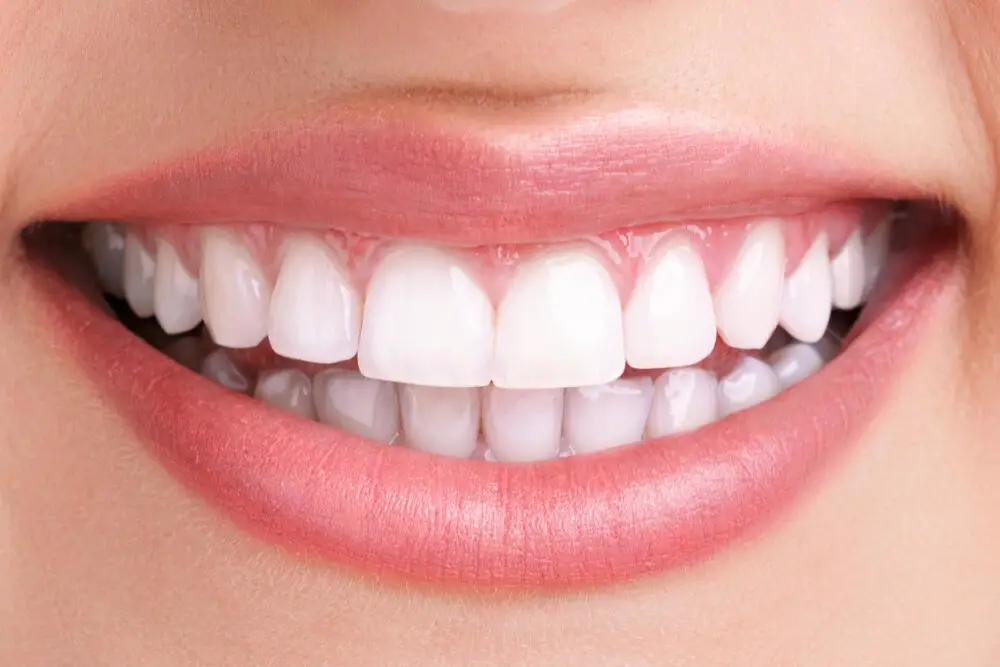
Overgrown gums refer to a condition where the gum tissues extend beyond the normal boundaries and cover a significant portion of the teeth. This condition can be caused by various factors, including poor oral hygiene, hormonal changes during pregnancy, or certain medications. However, there are several preventive measures that can help avoid overgrown gums. Firstly, maintaining proper oral hygiene is crucial in preventing overgrown gums. Regular brushing and flossing can prevent the accumulation of plaque, which can cause inflammation and gum recession. It is also essential to visit a dentist for regular check-ups, cleanings, and treatments to keep your gums healthy. Secondly, maintaining a healthy lifestyle can also help prevent overgrown gums. This includes eating a balanced diet, exercising regularly, and avoiding smoking and excessive alcohol consumption. Certain medications can also cause overgrown gums, so it is important to talk to your doctor about the potential side effects of any medications you are taking. With proper prevention, overgrown gums can be avoided, and your oral health can thrive. Be proactive in taking care of your teeth and gums to prevent overgrown gums and other dental issues.
Quitting tobacco products is one of the most crucial steps towards maintaining healthy gums and teeth. The harmful chemicals present in tobacco products can damage the soft tissues of the mouth, leading to gum recession and overgrowth. Moreover, tobacco use weakens the immune system and increases the risk of gum disease, tooth decay, and oral cancer. Therefore, it is essential to avoid tobacco products, including cigarettes, smokeless tobacco, and electronic cigarettes, to keep your gums and teeth healthy and strong. Instead, opt for healthy habits like regular exercise, a balanced diet, and stress reduction techniques to improve your overall health and well-being.
Stress management is crucial in maintaining good overall health, including dental health. When experiencing stress, the body releases hormones that can lead to inflammation and gum disease. To manage stress, it is important to identify the sources of stress and find ways to cope with them. This may include exercise, meditation, deep breathing, or speaking with a therapist. Additionally, practicing good oral hygiene habits such as brushing twice a day and flossing can help reduce the risk of gum disease. By managing stress and taking care of your oral health, you can say goodbye to overgrown gums and maintain a healthy smile.
Properly fitting dental appliances play a vital role in preventing overgrown gums. Ill-fitting appliances such as dentures, braces, or retainers can irritate the gums, causing them to swell and grow over the teeth. A well-fitting appliance, on the other hand, ensures that the teeth are properly aligned, reducing the risk of gum irritation and overgrowth. It is important to consult with a dental professional to ensure that any dental appliance fits properly and is adjusted as necessary to prevent any unwanted complications. With proper care and maintenance, dental appliances can help maintain healthy gums and a beautiful smile. So, it is crucial to choose dental appliances wisely and maintain them regularly to avoid gum overgrowth issues.
In summary, there are various treatment and prevention options available to address overgrown gums. The initial step is to practice good oral hygiene regularly, which includes brushing and flossing at least twice a day. Those suffering from overgrown gums due to gingivitis or periodontitis can seek professional treatment from a dentist or periodontist. Treatment options can range from scaling and root planing to surgical procedures such as gum grafting or flap surgery. In some cases, laser therapy may also be used to remove excess gum tissue. To prevent overgrown gums from reoccurring, it is essential to maintain good oral hygiene habits and attend regular dental check-ups.
Overgrown gums, also known as gingival hyperplasia, can be a sign of poor oral hygiene or a side effect of certain medications. While it may seem like a minor issue, it is important to address overgrown gums promptly. Overgrown gums can make it difficult to clean teeth properly, leading to further dental problems such as cavities and gum disease. They can also be unsightly and negatively impact a person’s self-esteem. In severe cases, overgrown gums can even impede speech or chewing. Seeking treatment from a dental professional can help prevent further dental issues and improve the overall health and appearance of your smile.
It’s crucial to seek dental care if you’re experiencing overgrown gums. Neglecting this issue can lead to severe complications such as gum disease, tooth decay, and even tooth loss. Don’t let the fear of dental procedures stop you from seeking help. Instead, be proactive and schedule an appointment with your dentist. They can assess the severity of the issue, recommend the best treatment plan, and provide you with the necessary care to restore your oral health. Remember, preventative care is the key to maintaining a healthy and beautiful smile, so don’t hesitate to seek professional help if you need it.
Conclusion
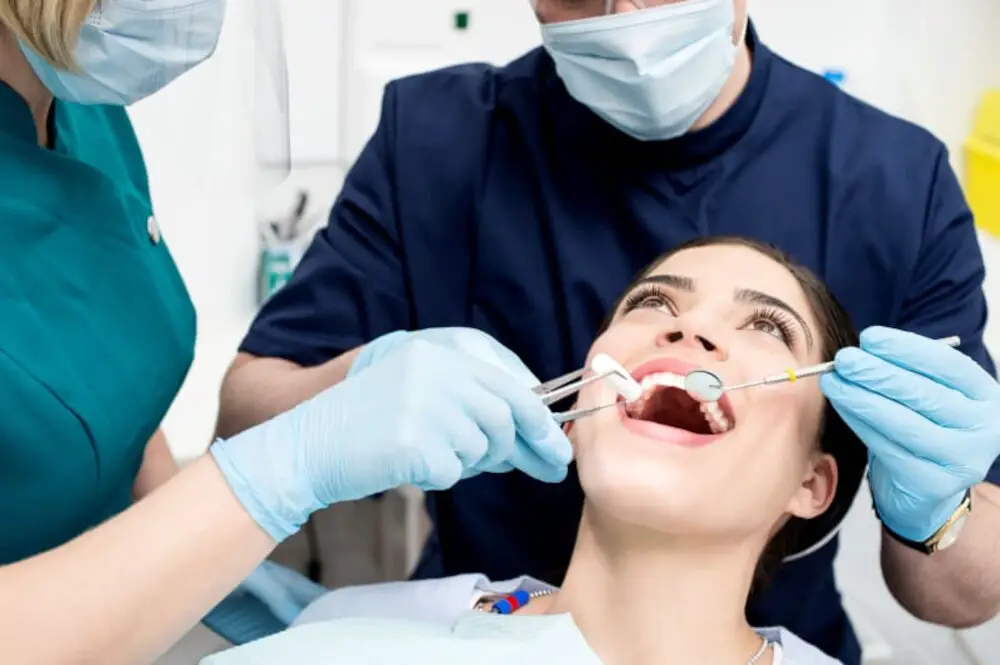
In conclusion, overgrown gums can not only affect the aesthetics of a smile but also lead to potential dental problems. Fortunately, there are quick and easy ways to fix this issue, such as gum contouring or orthodontic treatment. It’s essential to consult with a dentist or periodontist to determine the best course of action for your specific situation. Regardless of the method chosen, addressing overgrown gums can greatly improve the overall health and appearance of your teeth and gums. Don’t let overgrown gums hold you back from showing off your confident smile – take action today!



